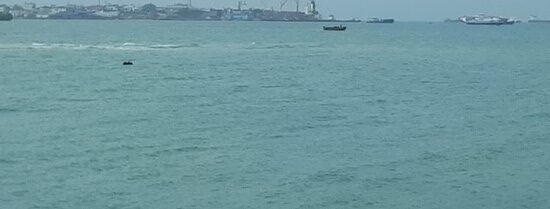What are constraints and opportunities in Tanzania for improving trade and competitiveness at macro (economy-wide), meso (sectoral) and micro (household or firm) levels? What tangible policy actions can be undertaken?
How can institutional arrangements for export competitiveness and diversification in Tanzania and Zanzibar be improved?
How can value chains in rice, leather, seaweed, horticulture and logistics be further strengthened?
These are key questions asked by the Trade Capacity Building programme, aimed at strengthening Tanzania’s capacity to develop trade policies to promote competitiveness of its exports as well as diversification.

The Trade Capacity Building Programme, jointly implemented by REPOA (based in Tanzania) and the International Institute of Social Studies (ISS) at Erasmus University of Rotterdam, successfully concluded its implementation phase 2023.
The primary objective of the programme was to enhance the capacity of policy makers, exporters and trade associations in assessing and revising trade and related economic policies. The overarching goal was to foster trade competitiveness and diversification, thereby expanding trading opportunities. This initiative was funded by the Secretariat of the African, Caribbean and Pacific Group of States (ACP Group).
Three-pillar approach to enhanced trade capacity
The project aimed at enhancing Tanzania's trade capacity through a comprehensive three-pillar approach:
- Knowledge generation: The primary focus of the first pillar involved conducting research studies and evaluating trade policies and value chains within priority sectors. Through this pillar, the project identified key constraints and opportunities, highlighting areas requiring policy review.
- Capacity building: The emphasis of the second pillar revolved around designing and implementing short-term training programmes customized to meet identified training needs and institutional assessments. Moreover, the project provided grants to 10 masters or PhD students, enabling them to conduct research on trade and regional integration, thereby enhancing knowledge and expertise in the field.
- Value chain development: The third pillar prioritized providing technical assistance across sub-sectors, including reviewing institutional arrangements, offering technical guidance, and facilitating public-private dialogues, among other initiatives.
The programme engaged key stakeholders including policy makers, exporters, farmers and trade associations, with a specific focus on five sub-sectors: horticulture, rice, seaweed, leather, and logistics. Through collaborative efforts, the project sought to bolster Tanzania's trade landscape and foster sustainable economic development.
Outputs
Demena, B.A., and P.A.G. van Bergeijk (Eds.) (2022). International Trade and Investment in East Africa: Prospects, Challenges, and Pathways to Sustainability. Frontiers in African Business Research series, Singapore: Springer Nature.
Demena, B.A., and P.A.G. van Bergeijk (2022). Trade and Investment in East Africa: introduction, overview, and implications. Introduction to: Demena B. & P. van Bergeijk (Eds.), InternationalTrade and Investment (ITI) in East Africa, Singapore: Springer Nature.
Trade as an engine for sustainable development? Interview about the book on winners, losers and policies for East Africa
Policy brief - Trade, productivity and competitiveness
Next steps
Following the end of this project, REPOA and ISS extended their collaboration on an innovative initiative to address knowledge and capacity gaps in Tanzania. The changing focus from aid to aid for trade influences the development policies needed to boost economic growth and trade competitiveness.

To meet this challenge, ISS and REPOA have launched a collaborative initiative, aiming to address knowledge and capacity gaps in Tanzania.
The programme's objective is to strengthen domestic capacities, enabling Tanzania to enhance its trading capabilities, compete globally and sustain economic growth. It targets mid-career and senior policymakers, researchers, academics, private sector professionals and civil society members engaged in policy analysis and productivity improvement.
Following meetings with Professor Carolyn Nombo, the Secretary General of the Tanzanian Ministry of Education, Science and Technology, and other stakeholders in October 2023, ISS and REPOA are expanding their collaboration to include two other prominent Tanzanian universities: the University of Dar es Salaam (UDSM) and Sokoine University of Agriculture (SUA).
The project aims to secure funding for the initiation of a project titled ENhancing SUstainable productivity through higheR Education in Tanzania (ENSURE).
New project - ENSURE
The current higher education landscape in Tanzania leans heavily towards theoretical instruction, primarily oriented towards preparing students for roles in the public sector. However, there is a pressing need for an overhaul in curricula to align with contemporary developments in Tanzania's key private sectors and integrate cutting-edge international insights on sustainable productivity enhancement.
ENhancing SUstainable productivity through higheR Education in Tanzania (ENSURE) aims to address these deficiencies by creating new curricula through a series of short courses involving practitioners from the primary private sectors, key governmental ministries, trade support agencies and university faculty. The aim of these courses is to develop strategies for enhancing sectoral productivity and the requisite skills necessary for achieving sustainable productivity growth.
This innovatively designed curriculum will emphasize practical skill development, equipping students with the expertise needed to drive sustainable economic growth in Tanzania. By leveraging this transformative educational approach, ENSURE aspires to harness Tanzania's demographic dividend effectively by nurturing a generation of forward-thinking professionals who are well-positioned to lead the nation towards prosperity and thus contributing to sustainable growth.
Funding
Contact

Dr Binyam Afewerk Demena
Project Lead
- Email address
- demena@iss.nl
Want to know more about this project? Contact Dr Binyam Demena

